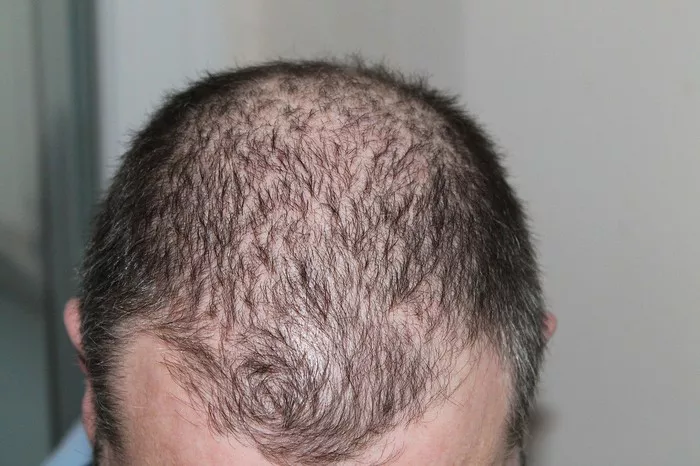Hair loss is a common concern among many individuals, and it can be attributed to various factors, including medications. Beta blockers, often prescribed for conditions like hypertension and heart disease, have raised questions regarding their potential link to hair loss. In this comprehensive guide, we will explore the relationship between beta blockers and hair loss, discussing the key aspects you should be aware of.
Beta Blockers: A Brief Overview
Beta-blockers, a class of medications, primarily target the beta receptors in the heart and blood vessels. They are commonly prescribed to manage conditions such as high blood pressure, angina, and irregular heart rhythms. By blocking the effects of the hormone adrenaline, beta-blockers reduce heart rate and blood pressure, alleviating strain on the heart. These drugs are also used in treating anxiety, migraines, and essential tremors. However, they may have side effects like fatigue, cold hands, and reduced exercise tolerance. It’s crucial to consult a healthcare provider before starting or discontinuing beta-blocker use, as abrupt withdrawal can lead to adverse effects.
Understanding Hair Growth Cycles
Hair growth follows a cyclical pattern in three phases: anagen, catagen, and telogen. Anagen is the growth phase, lasting several years, during which hair actively grows. Catagen is a transitional phase of a few weeks, where hair growth slows, and the follicle shrinks. Telogen is the resting phase, lasting several months, where hair is shed and replaced by new growth. Each hair strand on the scalp operates independently within these cycles. Genetics, health, and age influence the duration of each phase, determining hair length and thickness. Understanding these cycles helps explain hair loss and the effectiveness of treatments designed to promote hair growth.
Hair Loss and Beta Blockers: Is There a Connection?
Hair loss is a complex issue influenced by various factors, including genetics, hormones, and medications. While beta blockers, a class of medications commonly prescribed for conditions like high blood pressure and heart problems, have not been directly linked to hair loss in the same way as certain other drugs, there are a few considerations:
1. Telogen Effluvium:
Some individuals may experience a type of hair loss called telogen effluvium as a side effect of stress, illness, or medications, including beta blockers. This condition can cause a temporary increase in hair shedding, but it usually resolves once the underlying cause or medication is addressed.
2. Individual Variability:
Responses to medications can vary from person to person. While some individuals may experience hair-related side effects from beta blockers, it is not a common occurrence for most users.
3. Other Medications and Factors:
Hair loss can also be influenced by other medications taken alongside beta blockers or other medical conditions that require beta blocker use. Additionally, stress and underlying health issues can contribute to hair loss, making it challenging to pinpoint beta blockers as the sole cause.
If you suspect that your hair loss is related to beta blockers or if you are concerned about this side effect, it is essential to consult with a healthcare provider. They can evaluate your specific situation, adjust your medication if necessary, and recommend appropriate treatments or interventions to address hair loss concerns. Remember that managing hair loss often requires a comprehensive approach, considering all potential factors contributing to the issue.
Minimizing the Risk of Hair Loss
Hair loss is a common concern, but several strategies can help minimize the risk and promote healthy hair. Here are some tips:
1. Balanced Diet:
Eat a diet rich in vitamins, minerals, and proteins. Include foods like lean meats, eggs, fish, nuts, and plenty of fruits and vegetables to provide essential nutrients for hair health.
2. Scalp Care:
Keep your scalp clean and healthy. Use a gentle shampoo and avoid excessive washing, as it can strip the scalp of natural oils. Consider using a mild conditioner to prevent dryness.
3. Avoid Harsh Hair Treatments:
Limit the use of heat styling tools, chemical treatments, and tight hairstyles that can damage the hair shaft and follicles.
4. Stress Management:
High stress levels can contribute to hair loss. Practice stress-reduction techniques like meditation, yoga, or deep breathing exercises.
5. Regular Exercise:
Physical activity improves blood circulation, including to the scalp, which can benefit hair health.
See Also: 6 Best Dried Fruits To Fight Hair Loss: Nourish Your Hair
Navigating Hair Loss and Medications
In conclusion, while there may be a connection between beta blockers and hair loss, it is not a guaranteed outcome for everyone taking these medications. If you are experiencing hair loss and suspect it may be linked to beta blockers, it is essential to consult with your healthcare provider. They can assess your situation, explore alternative treatment options, and provide guidance on maintaining your hair health.
Remember that managing your overall well-being through a healthy lifestyle is beneficial for both your hair and your overall health. By staying informed and seeking expert advice, you can make informed decisions regarding your medication and hair loss concerns, ultimately leading to a healthier and happier you.


